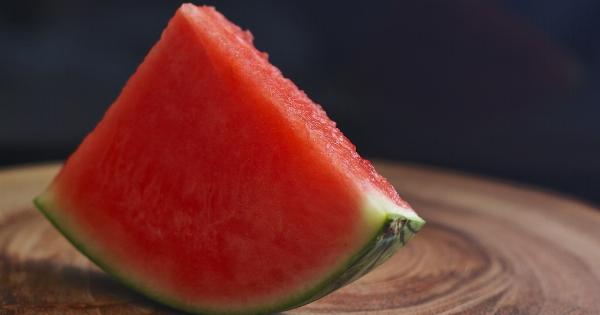Dogs are affectionate animals, and many of them are in love with fruits such as watermelons and melons. These fruits are not only tasty but also packed with vitamins and minerals that are good for your dog’s health.
However, before tossing your dog a few pieces of these juicy fruits, it is crucial to understand what they are all about and the potential hazards they may pose to your furry friend. In this article, we will discuss what you need to know about watermelon and melon as dog treats.
Watermelon as Dog Treats
Watermelons are an excellent source of hydration, making them perfect for hot summer days when your dog might be dehydrated.
In addition to being over 90% water, watermelons are rich in vitamins A, C, and B6 and contain lycopene, an antioxidant that helps to fight cellular damage. This makes them healthy treats for your dog.
However, you should be careful when giving your dog watermelon.
Although the flesh of a watermelon is safe for your dog to eat, the seeds and rind can pose a choking hazard, and the high sugar content of watermelon can also cause digestive issues such as diarrhea if your dog eats too much. Furthermore, watermelon contains a substance known as cucurbitacin E, which can cause an upset stomach, vomiting, and diarrhea in dogs if consumed in large amounts.
Melon as Dog Treats
Like watermelons, melons are also rich in vitamins A and C, potassium, beta-carotene, and fiber, making them a healthy snack for your dog. Melons are low in calories, making them a perfect snack for dogs who are overweight.
However, not all types of melons are safe for dogs to eat. For example, Persian melons are safe, but bitter melons can be toxic to dogs and cause digestive issues such as vomiting and diarrhea.
Another potential issue with melons is that their seeds and rind can pose a choking hazard to dogs just like watermelon.
While it is safe for your dog to eat the flesh of the melon, it is essential to remove the seeds and skin to avoid a potential choking hazard.
How to Serve Watermelon and Melon to Your Dog
Before serving watermelon or melon to your dog, it is essential to do a few things to ensure that your furry friend enjoys the treat safely. Here is what you need to do:.
- Remove the seeds and skin of the fruits before giving them to your dog to avoid choking hazards.
- Give your dog a small slice of watermelon or melon to determine whether he/she is sensitive to the fruit.
- Do not give your dog too much watermelon or melon at a time. A few small pieces won’t hurt, but overfeeding with watermelon or melon can lead to digestive issues.
- Make sure that you keep the leftovers in the fridge as they spoil quickly.
- Avoid giving your dog canned watermelon or melon as they contain preservatives and added sugars that can be harmful to your furry friend.
The Bottom Line: Can Dogs Eat Watermelon and Melon?
Yes, it is safe for dogs to eat watermelon and melon in moderation. However, you should always check for any allergic reactions and avoid giving your dog watermelon seeds and rind, bitter melon, and overfeeding your furry friend with these tasty fruits.
If you have any concerns or notice any changes in your dog’s health after feeding them watermelon or melon, you should consult your vet for further advice.































